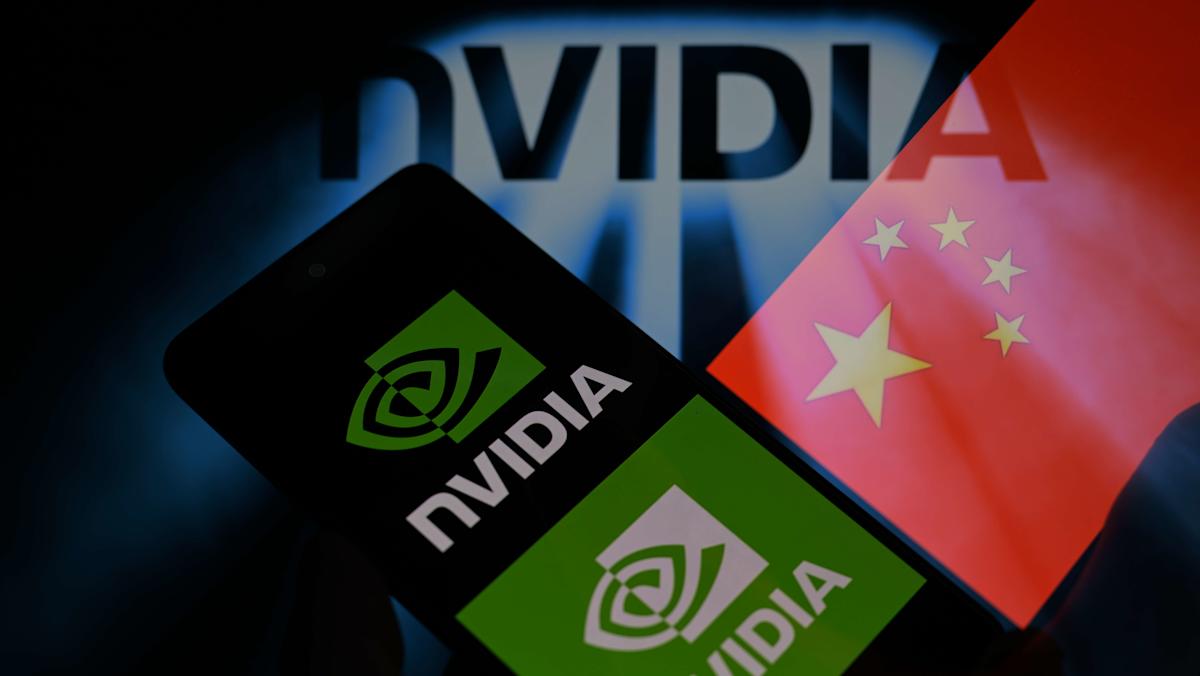
00:00 Josh
This is the FT, Riva saying China banning its companies from buying some of Nvidia’s chips. Uh looking at Nvidia here, we’re down a bit. We’re down about we call about two and a half percent. What do you make of that report, Riva? What why is China doing this?
00:26 Riva
A large part of it is signaling, Josh. Uh we’re in a very experimental phase of US-China negotiations. Uh as you can see from the Trump Xi talks that are expected on Friday, Besant in Madrid, talking to his Chinese counterparts, trying to drum up some sort of compromise, some kind of of bargain deal. And amidst all this, when we’re talking about potentially maybe lowering tariffs in some areas, purchase agreements, things like that, the Tik Tok deal as well. Um you have uh a lot of escalatory points happening on the tech controls front. And China is trying to use this broader negotiating climate to basically see what it can get out of the US at this stage, especially in trying to test uh Trump’s transactionalism. So, for now, there’s a careful balancing act with Beijing in trying to ensure that Chinese AI developers understand that ultimately it’s going to be Beijing to steer local adoption of homegrown chips uh on its terms. And so I think this is part of that signaling effort, but also use that with the United States to say, look, we’re not really satisfied by the lower grade chips. We’re going to go for the most advan advanced chips possible.
02:08 Josh
Let me ask you if if that’s China’s tactic, if that’s the strategy here, you know, kind of throw some weight around, signal, hey, we got leverage in this trade trade fight as well. Do you think it works, Riva? Do you think that tactic is going to prove successful?
02:29 Riva
Uh, I think so. I mean, because one, on the one hand, you want to tell Chinese AI developers, look, don’t go on a big shopping spree for Nvidia chips, right? So this undercores under uh undermines the the Nvidia and the US um addiction assumption, um that it can create these bigger and bigger Chinese dependencies on the US technology stack. Um but, you know, at the same time, China is playing several different moves in all of this. It wants to really maximize concessions from from the White House at this stage. And it’s not just about the GPU sales. Certainly that’s going to help when it comes to talk of purchase agreements with the US. So, on that list that kind of grocery list of things, um that the US is going to be demanding from China to include agricultural goods and Boeing jets. GPUs are a nice high value item, right? That you want to put on that list. And so naturally, China wants to go for things like the the Blackwell chips that Nvidia is designing for the China market. Uh but beyond that, China wants to go for more here. And that’s where it gets into the more foundational controls. And so, one of China’s biggest choke points still is on high bandwidth memory chips. And so, if if China can get the US to ease on that, that would be a big win. If China can get the US to ease up on semiconductor manufacturing equipment controls, that would be a big win. To be clear, I don’t think that the US is going to go there, um because those foundational controls are critical for companies like Nvidia to ensure that they stay well ahead of emerging competitors like Huawei.
Disclaimer: This news has been automatically collected from the source link above. Our website does not create, edit, or publish the content. All information, statements, and opinions expressed belong solely to the original publisher. We are not responsible or liable for the accuracy, reliability, or completeness of any news, nor for any statements, views, or claims made in the content. All rights remain with the respective source.
